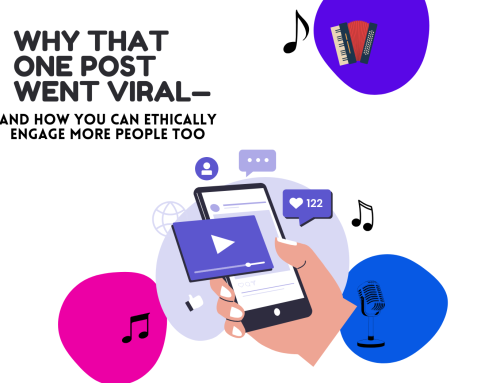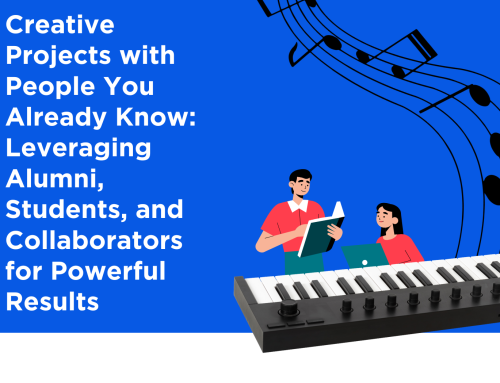I read an article by social psychologist Amy Cuddy and JillElyn Riley titled, “Why this stage of the pandemic makes us so anxious.” I also heard Amy Cuddy talk about this article in an interview with Brene Brown and the term “pandemic flux syndrome.” As an educator, everything they said resonated so deeply with me and pointed at the why of the struggle that many of us are facing as educators.
Now that we’re about a month (or more) into the school year (that was supposed to feel more “normal”), it’s clear that PFS (pandemic flux syndrome) is hitting educators hard. So let’s dig into this idea and how it pertains to education.
Table of Contents
1. We’ve reached surge capacity
Ok, so what is “surge capacity? It’s what we humans draw on to survive acutely stressful situations (situations that are not meant to last forever). Remember that feeling when schools first shut down in March 2020? We were all so generous with resources. We educators came together to help and to press on, and to be there for the kids. During that time, I wrote a list of free resources that I collected from educators around the world. Many others were doing the same. We felt needed and that we had what it would take to get through a few tough weeks (spoiler alert…).
It’s been more than a few tough weeks. And guess what? We’re at capacity. So, if your new lunch box and shiny planner aren’t doing it for you this year, you’re not alone. Likewise, if you feel like it’s June when you’re only a month into school, you’re not alone. It’s no coincidence that our most-read blog post this past month was one about quitting teaching. Teachers are burnt out, and we’ve only just begun.
2. We’re bad at predicting our feelings
In the Washington Post article, the authors describe how humans are particularly bad at predicting future emotions. As a result, we aren’t very accurate when imagining how something in the future might make us feel (and for how long that feeling will stay).
Have you ever had a goal you’ve wanted to achieve so badly that you fantasized about how good it would feel to achieve it? Were you ever let down by such a forecast? I certainly have been. I can’t help but wonder if the start to the 2021 school year has been that for many of us. We’ve built up a “normal” school year in our brains for months, imagining the beauty and connection that would surround us as kids entered our classroom. And then, reality hits. We’re still in a pandemic. Kids can be challenging. And, we are at capacity. So, if you feel let down by the start of the school year, you are not alone.
3. We’re bombarded with stories
What is in your life feed? I’m not talking just about social media; I’m talking about your life. What are the stories that fill your space? Are they stories of connection, triumph, creative overcoming? Or, are they stories of doom, despair, angst, and utter frustration?
Let’s be real. We can’t walk around pretending that things are easy and push down hard feelings. That won’t help us continue to show up and do our job each day. But, we can curate the stories that we center in our lives. This is personal, and this is subjective. It’s something that I’ve been reflecting on a lot lately. Social media is rife with folks that have opinions for days about teachers and our education system. Do the stories you consume support you in your life and career goals? Or, do they make it more challenging to show up each and every day? If you answered yes to the latter, it might be time to make some changes–>
How do we move past surge capacity and embrace the flux?
In Amy Cuddy’s interview with Brene Brown, she described the ways people around the globe have been dealing with their own PDS. All of them relate to our need for control and change when the immediate feel unbearable. She mentioned travel, quitting jobs, and getting tattoos as three prime examples. As I look down at the two-week-old ink on my forearm, thinking back on how I quit all of my adjunct jobs this summer and looking forward to a packed fall of travel, I’ve never felt so exposed.
Is that why I made those decisions? Was something within me looking for control, for change, for something new and novel to take me out of flux?
While I wish I could wave a magic wand and make conditions change for educators and education systems, I realize that is not possible. Still, here are a few ways that I think we could move through this year, embracing the flux and leaning into the things that matter.
Do the stories you consume support you in your life and career goals? Or, do they make it more challenging to show up each and every day?
1. Get Support
Whether professional help or a group of supportive friends (virtual or IRL!), you can’t do this on your own. Many school districts have plans for telehealth with mental health providers, and countless programs are subsidized to make them affordable for teachers. When I fell into my lowest low this past year, my therapist made all of the difference. Being able to talk through pandemic teaching, receive affirmation, and manage my stress has been a game-changer for starting the 2021 school year in a healthy place. If you need this support and can’t find it, or feel alone, please reach out to our support email ([email protected]), and we will do what we can to get you the help you need.
2. Take those days
Enough with the teacher guilt. Take your sick days. There is no reason to sacrifice your mental or physical health at the altar of “perfect attendance.” I know it’s hard, and I know it’s counter to the public servant narrative we’ve embraced in our profession. But, if you want to sustain yourself through a year in flux, you need to be ok with listening to your body and stopping when you need to stop. Trust that your time spent taking a break and healing will not only help you as a teacher but as a human that has so much more life to live.
3. Curate your stories
You don’t have to read the news. You don’t have to scroll to Facebook. You don’t have to listen to your angry co-worker’s rant about new mandates. Of course, you can do these things if you’d like! But, the chances are that the stories you find in those spaces will only lead to greater disconnection, not greater connection.
Find the beautiful stories. Find and engage with stories that connect and stories that celebrate. Speak them, write them, listen to them, and share them. Whether it’s a heartfelt TV series, a soul-nourishing podcast, a cup of coffee with an old friend, or a book centered in a time and space that feels manageable, lean into the meaningful.
For me, that means emailing parents every week. I sit down at the end of my school day and send at least one “win” email. I share how students went above and beyond and celebrate the beauty of being back together in a collective space. Some parents will respond with stories of gratitude and belonging, and those stories are what propel me to wake up and do it again.
We can’t “remediate” our way out of pandemic learning just like we can’t bubble bath our way out of pandemic flux syndrome. But, we can cling to community, connection, and creating. These are what make us human and will allow our humanity to continue far beyond this school year.
Find and engage with stories that connect and stories that celebrate. Speak them, write them, listen to them, and share them.
What about you? What is helping you get through PFS? Share in the comments below.




Well done!
This post really hit home, Sarah. Thank you for expressing the sentiments I and many other teachers have been feeling lately. ❤️
This really resonated with me – thank you